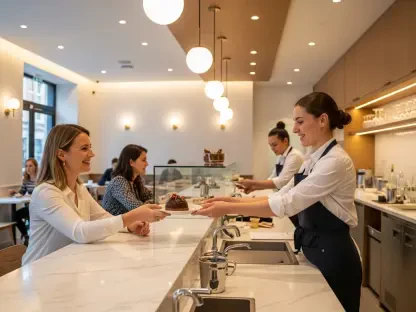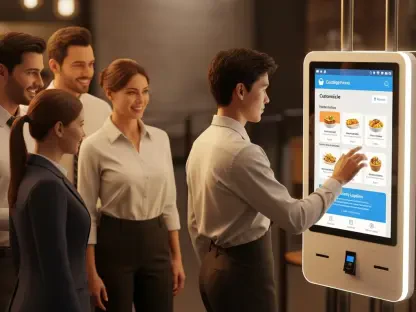Welcome to an insightful conversation with Katarina Railko, a seasoned expert in hospitality technology and event management. With a robust background in travel and tourism, Katarina has honed her expertise in creating memorable experiences through expos, conferences, and entertainment events. Today, we dive into her perspectives on leadership, innovation, and the future of the events industry, exploring how technology and customer focus can drive success in this dynamic field. Join us as we uncover her vision for transforming challenges into opportunities and fostering growth in the hospitality sector.
How did you first become passionate about the hospitality and events industry, and what keeps that passion alive for you today?
I’ve always been drawn to the energy of bringing people together. Early in my career, I worked in travel and tourism, where I saw firsthand how events can create connections and lasting memories. That human element—seeing a vision come to life and knowing you’ve played a part in someone’s special moment—is what hooked me. What keeps me passionate now is the constant evolution of the industry. There’s always a new challenge, a new technology, or a new way to surprise and delight. It’s never stagnant, and that keeps me energized every day.
Can you share a memorable moment from your career that shaped your approach to leadership in this field?
Absolutely. Early on, I was part of a team organizing a large-scale conference that hit a major snag just days before the event—our main venue had to cancel due to unforeseen issues. We had to pivot quickly, relocate, and still deliver a seamless experience. That taught me the importance of adaptability and clear communication. As a leader, I realized my role wasn’t just to plan but to inspire calm and confidence in my team under pressure. Since then, I’ve always prioritized building resilient teams who can think on their feet and focus on solutions, no matter the obstacle.
What is it about the intersection of technology and events that excites you the most?
Technology has this incredible ability to amplify what we do in events. It’s not just about efficiency—though streamlining operations is huge—but about enhancing the experience. Think about how a well-designed platform can simplify bookings or how virtual tools can expand an event’s reach globally. I get excited about the potential to remove friction for event professionals so they can focus on creativity and connection. It’s like giving them a superpower to do what they do best, and I love being part of that transformation.
What do you see as one of the biggest challenges event professionals face today, and how do you think technology can help address it?
One of the biggest challenges is managing the sheer complexity of events while meeting rising expectations. Clients want personalized, flawless experiences, often on tight budgets or timelines. Technology can be a game-changer here by automating repetitive tasks like scheduling or tracking RSVPs, which frees up time for planners to focus on the unique touches that make an event stand out. Beyond that, data analytics can offer insights into attendee preferences, helping professionals anticipate needs before they’re even voiced. It’s about working smarter, not harder.
How do you approach balancing innovation with the core needs of customers in the hospitality space?
It starts with listening. Innovation for the sake of innovation can miss the mark if it doesn’t solve real problems. I always aim to stay connected to what customers are struggling with or dreaming about. For example, if event planners are overwhelmed by manual processes, that’s where we should focus our tech solutions. At the same time, you have to anticipate future needs—sometimes customers don’t know what they’ll want until they see it. So, it’s a dance between addressing today’s pain points and gently pushing the envelope with new ideas, always grounded in what adds value to their work.
What’s one piece of advice you’d give to event professionals looking to grow their business in today’s fast-paced environment?
My advice is to embrace adaptability. The industry moves quickly, whether it’s new trends, technologies, or client expectations. Stay curious—learn about the tools and strategies that can make your work easier or more impactful. And don’t be afraid to lean on your network. Collaborate with others, share ideas, and ask for feedback. Building those relationships can open doors and give you fresh perspectives. At the end of the day, growth comes from being open to change while staying true to your passion for creating great experiences.
What is your forecast for the future of technology in the events industry over the next few years?
I think we’re heading toward an era where technology becomes even more seamless and integrated into every aspect of events. We’ll see more AI-driven personalization, where platforms predict attendee needs or suggest tailored experiences before anyone asks. Hybrid events will continue to grow, blending in-person and virtual elements in ways that feel natural and engaging. I also expect a bigger focus on sustainability, with tech helping to reduce waste and carbon footprints through digital ticketing or virtual planning tools. Overall, the future is about making events more accessible, impactful, and efficient, and I’m excited to see how it all unfolds.









